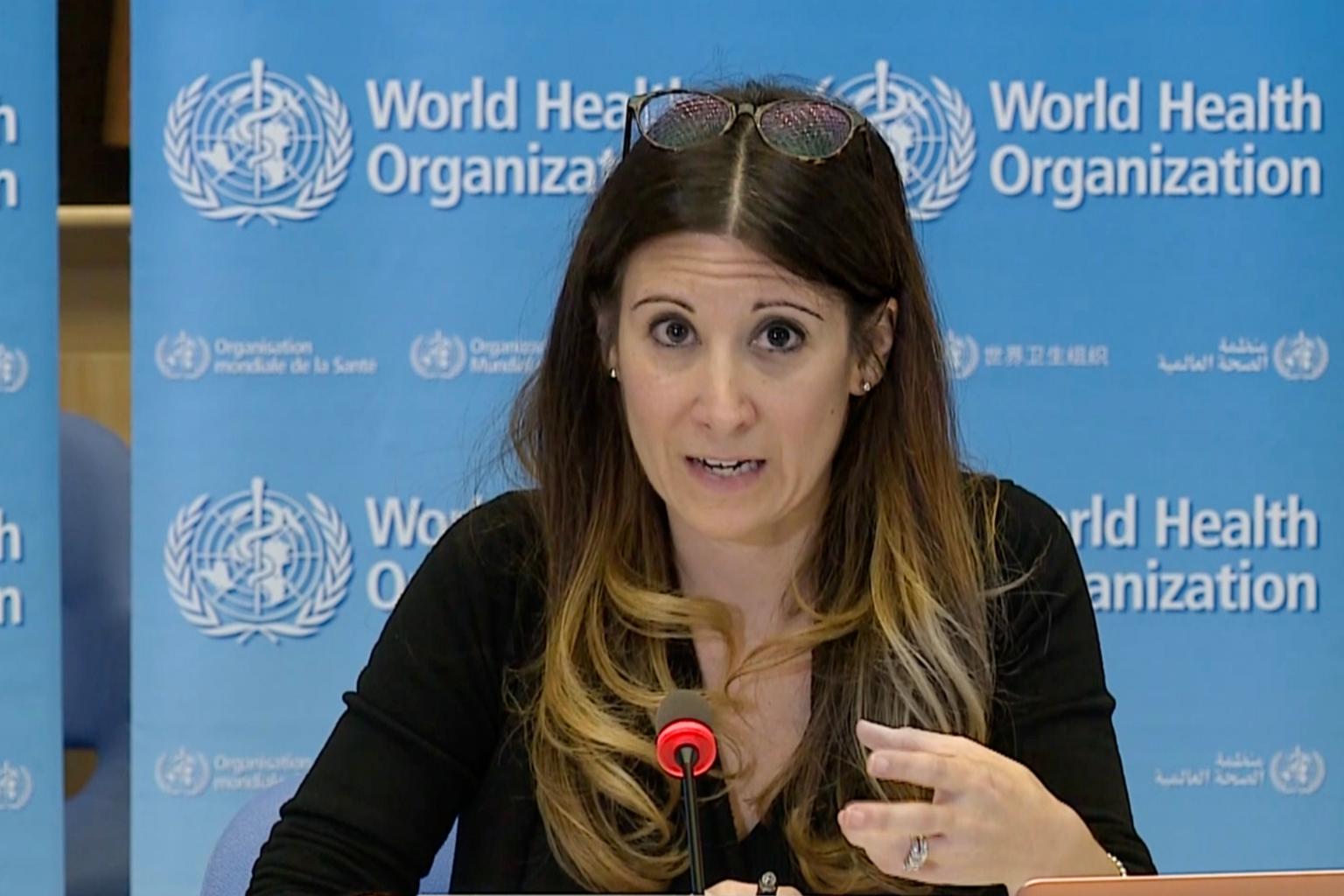WHO official downplays comments on coronavirus transmission by asymptomatic cases
Sign up now: Get ST's newsletters delivered to your inbox

Dr Maria Van Kerkhove said many countries undertaking contact tracing were not finding that asymptomatic cases caused further spread of the virus.
PHOTO: AFP
GENEVA/LONDON (BLOOMBERG, REUTERS) - A top World Health Organisation official on Tuesday (June 9) attempted to downplay her comment that asymptomatic transmission of coronavirus is "very rare," an assessment that revived controversy over transmission routes.
In a live event on social media to take questions from the public, Dr Maria Van Kerkhove said her comments on Monday referred to two to three studies that have been published and that try to follow asymptomatic cases over time and look at all their contacts to see how many additional people were infected.
"That's a very small subset of studies," said the WHO epidemiologist. "I was responding to a question, not stating a policy of the WHO.
"I was just trying to articulate what we know. I used the phrase 'very rare' and I think that's a misunderstanding to state asymptomatic transmission globally is very rare. What I was referring to was a subset of studies. I also referred to some data that isn't published."
Dr Van Kerkhove said while it is known that there are some asymptomatic patients who can transmit the virus, it needs to be better understood how many in the population do not have symptoms and separately, how many of those individuals go on to transmit to others.
She had said on Monday that many countries undertaking contact tracing had identified asymptomatic cases, but were not finding that they caused further spread of the virus.
"It is very rare," she said, adding that her comment was based on detailed reports of contact tracing from various countries.
Her comment elicited criticism from some public health experts.
Professor Liam Smeeth, a professor of clinical epidemiology at the London School of Hygiene and Tropical Medicine, said: "It goes against my impressions from the science so far that suggests asymptomatic people - who never get symptoms - and pre-symptomatic people are an important source of infection to others."
Prof Smeeth and other experts said understanding the risks of transmission among people with mild or no symptoms is crucial as governments begin to ease the lockdowns and gradually replace them with case tracking and isolation plans.
"This has important implications for the track/trace/isolate measures being instituted in many countries," said Dr Babak Javid, a Cambridge University Hospitals infectious diseases consultant.
Some experts say it is not uncommon for infected people to show no symptoms.
A non-peer-reviewed study from Germany in May based on 919 people in the district of Heinsberg - which had among the highest death tolls in Germany - found that about one in five of those infected were symptom-less.
But data is sparse on how likely such people are to transmit the disease.
The co-head of Singapore's coronavirus task force told Reuters on Monday there had been asymptomatic transmission cases there, between people living in close quarters.
China said last week that 300 asymptomatic Covid-19 carriers in its central city of Wuhan, the pandemic's epicentre, had not been found to be infectious.
Dr Keith Neal, a professor of the epidemiology of infectious diseases at Britain's University of Nottingham, said that while the question of how big a role asymptomatic transmission plays in new infections is unclear, what is known is that people with symptoms are responsible for most of the spread of the disease.
"This reinforces the importance of any person who has any of the symptoms of Covid-19 arranging a test... as soon as possible and isolating until they get their test result," he said.


